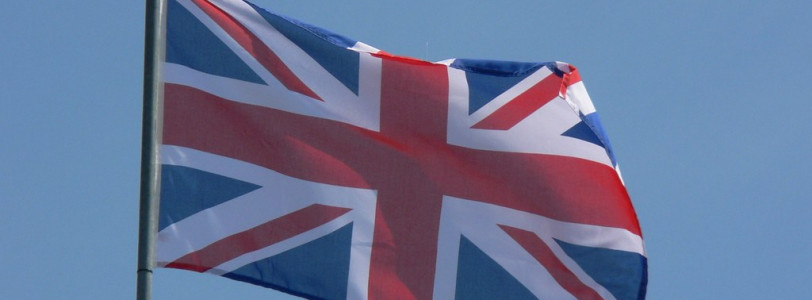Britain has truly dragged its feet over acknowledging its colonial history, but in recent years it has slowly been improving. However, the constant declarations of patriotism on both the left and the right of UK politics have remained as rife as ever – arguably intensifying in recent years. A major fixation for politicians has always been the monarchy. Their historical prevalence is felt around the world, and their role in legislation and non-political support of organisations and charities renders them a prominent symbol of national pride.
However, organisations such as the campaign group Republic are arguing that the monarchy is undemocratic, as the public can’t elect the position and cannot check or impeach royalty. They state on their website: “The monarchy gives vast arbitrary power to the government, shutting voters out from major decisions affecting the national interest. The Queen can only ever act in the interests of the government of the day and does not represent ordinary voters.”
As it stands though, even though they’re meant to be apolitical, the royals have a strong presence in government. The upcoming Queen’s Platinum Jubilee has gotten Parliament very excited, so much so that parties are chomping at the bit to declare just how proudly royal adjacent they are.
The gauche display of national pride showcased by politicians feels highly disingenuous. There are endless stories circulating around how politicians are manipulating both the political system and the public’s ideology for their own gain – at times to the detriment of the country at large.
Brexit perfectly encapsulates nationalism being used as a political tool. The tactics that Nigel Farage, Boris Johnson et al used to win the controversial referendum can almost be completely boiled down to sentiments of patriotism and nationalism – and the ensuing xenophobia that the vote manifested. We now once more see nationalism emerging in force as politicians set out their upcoming plans for 2022, utilising the Queen’s Platinum Jubilee and the national anthem to push their rhetoric and win over voters.
The Labour leader Keir Starmer declared his patriotic aims in a speech recently, professing his love of Britain, the rule of law, the monarchy and public services. He said that his party will look towards British pride above all else, and said: “We are a patriotic party, the Labour party that I lead will always act in Britain’s best interests.” On patriotism, he mentioned: "This country has presented me with great opportunities. It's a great place to live. But I don't think you cease to be a patriot because you notice your country has flaws.”
Starmer’s vague speech has been met by criticism of enforcing a Blair-like ‘Blue Labour’, in which the left will be led into a more socially conservative direction. His muted response to the transphobic statements made within Labour, the lack of support he gave to Zarah Sultana after being racially abused last year, and the fact that four female MPs of ethnic descent are on a hit-list for deselection all seem to further prove that this is the direction in which he intends to take the party. Starmer is known to sit on fences, but now, his recent patriotic pledge sees him proudly (and safely) sitting on the side of the monarchy.
However, Labour are beating the Tories in the polls, and maybe Starmer’s declaration of pride helped with that. But it is more likely that Boris Johnson’s public blunders and constant investigations have contributed to the growing distrust of the Conservative Party. Starmer’s speech may have snapped up more votes from the nationalistic Tory supporters, but his method feels a little too much like a rehash of Tory ideals. The public seem less fazed by the prospect of royal celebration, what with the damning allegations surrounding Prince Andrew and the pandemic still an issue. It feels like a game is being played, with politicians rushing to outdo the opposition’s flag waving, to the detriment of the real issues facing society.
The royal family’s dysfunction
Even the royal family themselves, the pinnacle of patriotism, have acknowledged the damage that has been done and the sacrifices that have been made by other cultures in the name of Britain. In November, Barbados declared itself a republic, citing that it was cutting its colonial era ties with both Britain and its monarchy. Britain had enslaved Barbados for over 200 years, and their people celebrated with fireworks and jubilation at the end of 2021 after distancing itself from Britain.
Prince Charles commended the Barbadian people for their move, and their ‘fortitude’ for the awful acts committed during the UK’s rule, saying: "From the darkest days of our past, and the appalling atrocity of slavery, which forever stains our history, the people of this island forged their path with extraordinary fortitude."
More direct condemnation of the royals and their jaded past came from Prince Harry himself. The prince publicly left the royal family last year due to damning revelations that he and his wife, Meghan Markle revealed to Oprah Winfrey. One striking discovery was the underlying racism within his family, where an unnamed royal asked about how dark their baby's skin tone would be.
Harry and Meghan also spoke out about their disdain for Britain’s slave trading past in 2020, saying: “There is no way that we can move forward unless we acknowledge the past,” his wife adding: “We're going to have to be a little uncomfortable right now because it's only in pushing through that discomfort that we get to the other side.” Both of these remarks were met by numerous racist tabloid complaints in the UK press.
2022 is the year of the Queen’s platinum Jubilee, a supposed patriotic celebration which is increasingly seeming like an unnecessary stroke of a dated ego – much like British pride itself. Politicians are using the event as a way to spur more nationalism throughout the UK, but you would be hard pressed to find anyone genuinely excited about the celebration – except for maybe welcoming an extra day off work.
God save our Queen
In an attempt to reinforce Britain’s patriotism, Conservative MP Andrew Rosindell thought it the right time to propose that the national anthem should be aired at 1am every night. Rosindell said that singing the national anthem was “something that provides a great sense of unity and pride in our nation. It always used to be played at the end of the day and I think that, for the Queen’s Jubilee, they should restore that tradition.”
“We need to ensure that schools are singing the National Anthem with children in assembly at least once a week. It brings unity and strength. It is long overdue that that becomes a daily or weekly part of what the school does to teach children about pride, patriotism and love of country and understanding how the Monarchy brings all British people together.”
Culture secretary Nadine Dorries, the MP responsible for broadcasting, said it was a “fantastic question”. Nigel Huddleston, her deputy minister added: “We fully support the singing of the national anthem, [the term] ‘Her Majesty the Queen’, and other expressions of patriotism, including the flying of the Union Jack. The more that we hear the national anthem song, the better.”
What impact does nationalism have?
Britain and its government are doubling down on patriotic stance this year. The two largest parties in Parliament are both attempting to win over the nationalistic among us by consistently showcasing the pride we should all feel living in Britain, and parading the monarchy and the anthem as though they are forgotten artifacts. But how many of us are really all that patriotic, and does anyone actually like singing our national anthem?
Britain’s past, as well as the royal family’s apparent racism, alleged paedophillia and declining popularity highlight the messy history of the monarchy, moreso now than ever before. Surely it is time for politicians to look towards further evolution of our traditionalist ways as opposed to clinging to the dated, destructive and decaying reality that is Britain's so-called proud history.
It leaves the public in a strange spot. The consensus seems to be that our culture is due for a change, but no one is really opposing the fixation on nationalism and the utilisation of its bargaining power in Parliament. Despite the lack of pride many feel for Britain, how much can really change when British pride is ultimately exploited so often within Parliament.









0 Comments